Better Than Most is a regular feature of The Business of Giving examining the best places to work among social good businesses and nonprofit organizations.
Denver: There is a nonprofit organization based in Washington DC called the Partnership for Public Service whose mission is to see that the federal government works better for all of us. They’re also one of the very best places to work and we’ll find out why starting with their President and CEO, Max Stier and then hear from some of the members of the Partnership team.
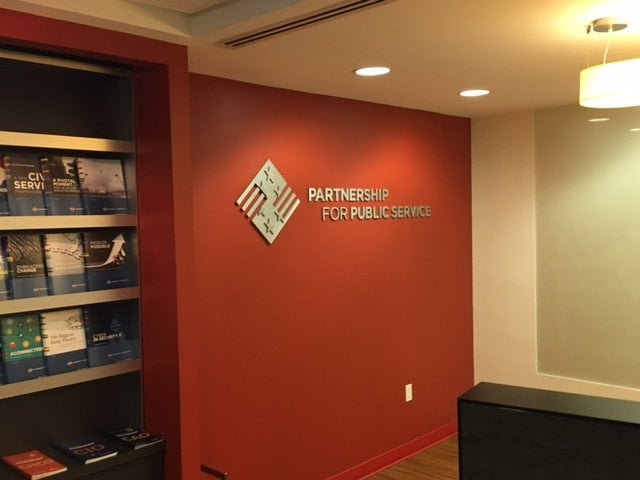
Max: I remember working for a prior boss myself at HUD and there was a conversation around public housing and concerns about how people believe that people in public housing were not taking care of it well. My boss then spoke up and said, “How many of you here have stayed in a hotel and left all the towels on the floor? How many of you have rented a car and treated it in a way that you would never treat your own car?” His basic point to all of us was when you own something, you treat it better. And that is true for organizations as well. And so I believe that one of the things I want to see fostered here is that sense of ownership. When people own the place, they will treat it better, they will enjoy it better and we will all win.
Georgia: For example, that’s things like a public speaking workshop where interns can volunteer to come and present to the rest of the group and then get really, really spot-on feedback from one of our most seasoned VPs who’s there leading the exercise, not only giving general pointers but really listening to people’s style and helping them understand what they can play up than what maybe they need to refine a little bit. And again as an intern, that’s something that’s so thrilling to get that kind of feedback from that level because if you get buy-in from somebody like that, you’re ready to take on the world.
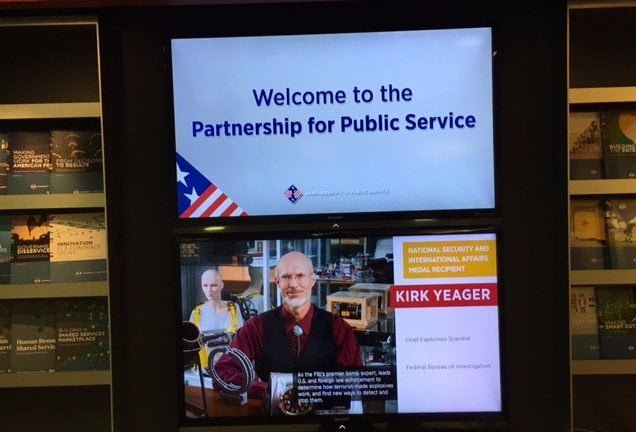 Amiko: There are things like that that we certainly look for and it is going to be the right fit for somebody but I also want to highlight it from a cultural fit, there’s also this willingness and acknowledgement that we want people to enhance their culture. So it’s not just the people who fit in a particular mold but who will help us improve what we do and have this willingness to bring different ideas and help us grow and sometimes that’s asking tough questions and helping us to think about how we might do something differently or better.
Amiko: There are things like that that we certainly look for and it is going to be the right fit for somebody but I also want to highlight it from a cultural fit, there’s also this willingness and acknowledgement that we want people to enhance their culture. So it’s not just the people who fit in a particular mold but who will help us improve what we do and have this willingness to bring different ideas and help us grow and sometimes that’s asking tough questions and helping us to think about how we might do something differently or better.
Ella: This is the first place where my supervisor has ever asked me, “What can I be doing for you? What are you really interested in learning in? What do you really wanna be doing?” And also seeing those opportunities and also had my supervisor email me really excited saying, “Hey! There’s this great project I heard about, you are the first person that come to mind. Not just by me, but by several people at this organization. So let’s get started on it. I think it be a really great opportunity.” And knowing that both my direct supervisor here as well as just other folks at the organization having my best interest in mind –again, not just to succeed but to get different experiences that I want — really make an enjoyable place to work.
Brandon Lardy: We get it from the values awards every month or every quarter now that we do them where we go through and we recognize people for the really good work that they’re doing and how they are embodying the values of the Partnership. So I really think that we get it constantly everyday we’re hearing about what matters to the organization. We’re hearing how we fit in the organization. And how the values really transcend through all of our work.
Laura: I think this is the only place where I’ve ever seen an intern giving a presentation at a big round table event that he sort of helped plan and also the CEO doing kitchen duty. I think that Partnership lets you actually have an influence in their reputation. So right off the bat, I was put in projects where I was interacting with some of our corporate partners or the transition teams. And I think it’s pretty surprising that someone in an entry-level job is given so much trust in the Partnership’s reputation. And I think the flatness of the organization really helps make it a very productive place to work. No one is saying what they think their superiors want to hear in a meeting. No one’s afraid to raise ideas; it’s really I think what allows for the most conducive work environment.
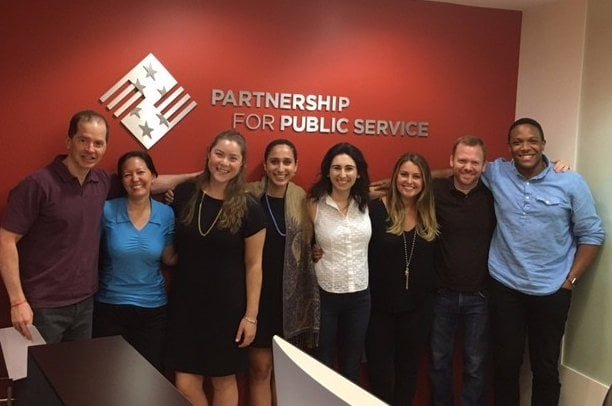
Brittney: And on my very first day, our Vice President of Leadership and Evaluation sat me down and talked to me about our team and what my role would look like. And he said something that really struck with me and that I thought kind of embodies the Partnership culture and there was something really different than the experiences that I’d had at other organizations. He said that, “If there was ever a time and when there is the time, when you’re ready to do something different to take another step, whether that is something here at the Partnership or elsewhere, that I’m going to be here to support you.” For someone on my first day to be talking about what I might be doing later on or potentially leaving, I thought that that really showed that he was invested in me and my success beyond just what I was able to contribute to the team.
Max is very adamant that we bring together staff weekly and that's an opportunity for us to both share our accomplishments, highlight things that are going well, and also share places where we may have experience challenges or we may have not hit the mark where we wanted to. So it is a really good chance to do that as well.
Andrew: I see leadership here having a very powerful cascading effect across the organization. A few examples, one; Max is always asking for feedback. Open book; he wants to know what he can do better, wants to know what’s going on, not trying to hide behind anything or pretend things are going well when maybe they could go better. And that happens across the organization. My boss, who’s one of the vice presidents here, he asked me for feedback personally. We’ll go out to lunch at quarterly reviews and yes, it’s about my experience and my review. It’s also how can he do better and he has very specific questions that he’ll ask me then I go ask my direct reports. And so we’re having these exchange rather than this kind of top-down we’ll-tell-you-what-to-do. It’s how can we all continue to make this place better. It’s sort of to the point of ownership too, I think.
Ella: We really talked about how the Partnership emphasizes bringing your authentic self to work. And not just who you are in a work environment but everything that makes you you and bringing that to the table. We are not an organization where to be successful, to do good work, to be able to interact with different customers or external stakeholders or internal stakeholders, you must meet this cookie cutter image that sometimes other organizations strive to get employees to fit in. We really value everyone bringing that authentic self to the table. And part of the way that I think our culture are really enables us to do that is by really having an emphasis that belonging matters; that making sure that every part of you, what is important to you
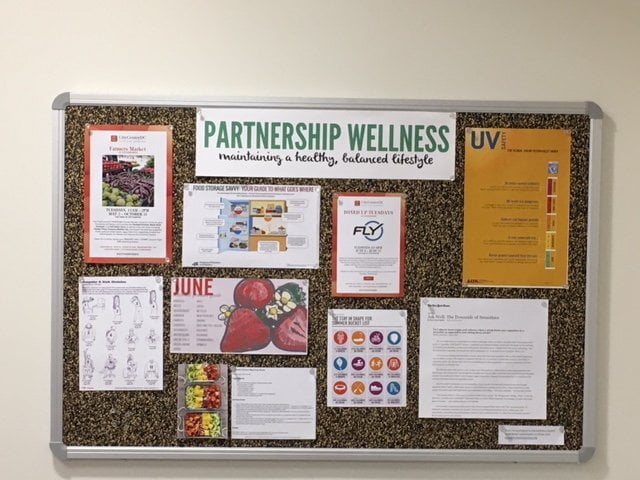
Brandon: I remember at one point our VP turn to me and said, “What do you think about at the time we were talking about our cornerstone project: Best Places to Work.” I just looked at her like: You really care what I have to say? I’ve been here for probably two weeks at that point. I think it’s really refreshing. It really helps you feel like what you have to say matters and leadership really does want to hear what you have to say. And that does, at the end of the day, help you feel included, helps you feel like you’re actually contributing to the organization. It helps you feel like what you’re doing actually matters and it really makes it a joy to get up everyday and go in to work.
Max: The sense of culture to me is so important and baked into everybody here. So I’m learning from everybody. Everyone is adding to our culture and keeping track of our culture and helping that culture grow. Again, it’s sort of the shark that allegedly drowns if it doesn’t keep moving forward. We have to continue to get better. But I think, again, that sense of being proud of everything that is happening around us whether or not we directly contributed to it or not. In fact, when we haven’t, to be able to see something amazing occur is even better.
Laura: I’ll just talk about the one thing that I think makes the Partnership very unique and that’s the nature of our work relationships. I don’t think of my colleagues as colleagues. I think of them as friends that I happen to work with. And that just goes to say that my work friends are my best friends. A whole bunch of us started at Kickball League and hang out at that and I always see them outside of work maybe more than inside of work when I’m like focused in my cubicle working. I think that what that really does is energize you and that’s coming from someone who’s an introvert, it still very much energizes me and makes me want to come in to work, enjoy work and be my most productive self.
Denver: I want to thank all those who were good enough to participate in this segment: Max Stier, Andrew Marshall, Brittney Vevaina, Ella Holman, Brandon Lardy, Georgia Haddad, Laura Pietrantoni, and Amiko Matsumoto. The podcast of this piece along with the transcript as well as pictures of the participants and the offices of the Partnership for Public Service can all be found at denverfrederick.wordpress.com
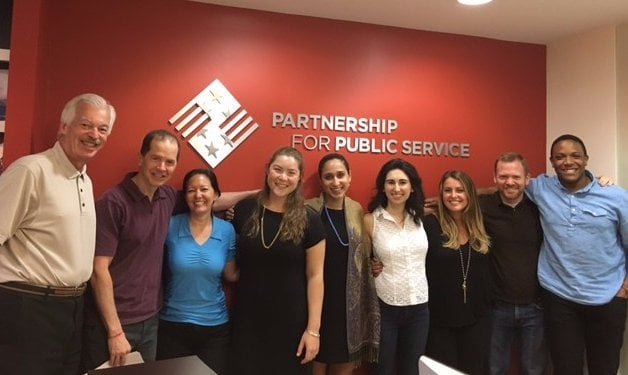
The Business of Giving can be heard every Sunday evening between 6:00 p.m. and 7:00 p.m. Eastern on AM 970 The Answer in New York and on iHeartRadio. You can follow us @bizofgive on Twitter, @bizofgive on Instagram and at http://www.facebook.com/BusinessOfGiving

